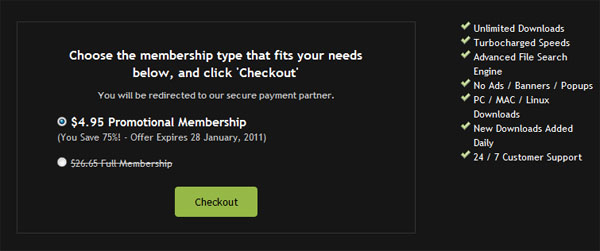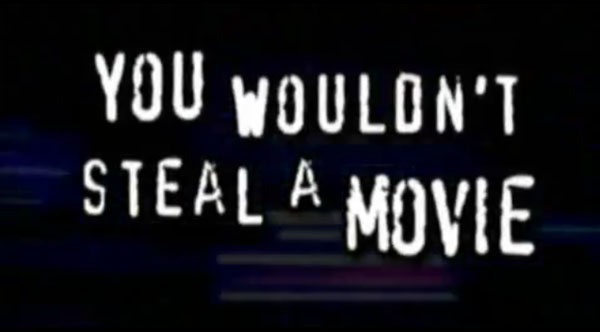
Fake Publishers
So who are these 'fake' publishers? Of course, BitTorrent, isn't the problem-free portal to a virtual goldmine that it's often made out to be. File-sharers sometimes have to wade through a swamp of fake files, porn jokes and hidden malware before they get the file they want. These form a portion of the 'fake' publishers, but Kryczka also thinks the music and movie industry are behind some of them too.
'I think they're some kind of third-party company,' says Kryczka, 'which copyright owners are asking – and paying money – for their services. For example, one thing that we realised is that there are some fake users monitoring the torrent swarms, who are searching for the IP addresses of the other users downloading the copyrighted content. So then companies can try to punish the guy, or at least threaten them because they've downloaded their copyrighted content.'
'We also found that, with some fake content, you could download the movie, and then be given an anti-piracy message. In some of the movies you download – for example, Avatar - you download it – you think it's Avatar, and you open it in your player and you simply see the beginning of the movie, which is then interrupted by anti-piracy TV spots, such as anti-piracy adverts.'
Making a Profit from Seeding
So, back to the original question, what motivates a small amount of users to seed so much content? According to the research, it's certainly not any sense of altruism, but rather an easy way to make tidy profit.
Hold on, you might think; Pirate Bay only has a couple of ads from z5x.net on the torrent pages, and the files are free – how are the seeders actually making money? According to the research, there are a variety of ways in which the original seeders make a profit, but one of the major ones is by luring downloaders from Pirate Bay to their own indexing site.
'Basically, a person goes to indexing pages like the Pirate Bay and downloads movies or whatever,' explains Kryczka. 'The publisher wants to attract people from the Pirate Bay to their own indexing pages – that's why they advertise their links. The idea is that, for them, the user gets a good quality movie and download time, and then moves from the Pirate Bay to their own private portal. And then, of course, in this portal there are lots of advertisements, such as Google Ads, and then they make a profit from this.'
There are a number of ways in which a seeder can advertise the URL of their indexing site via a torrent. 'The name of the webpage appears in several parts, says Kryczka. 'In the torrent you download, you have a movie and you have a TXT file, like ReadMe or whatever, and in the TXT file is the address of their own webpage, or the URL is in the title of the TXT file. The URL also often appears in the title of the movie file, for example.'

In addition to advertising revenue, torrent indexing sites can also profit from features such as premium download accounts
In addition to revenue from advertising, seeders can also profit by many other means. Kryczka gives the examples of registered user accounts that offer better download times where they don't have to worry about share ratio, while others request donations. Kryczka also points out that this is just one type of seeder profile, and that there are others who provide different services such as porn image hosting.

MSI MPG Velox 100R Chassis Review
October 14 2021 | 15:04









Want to comment? Please log in.